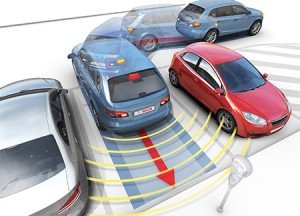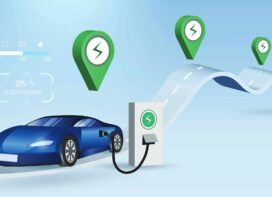Redefining the original purpose of the automobile
 Some of these trends seen in automotive industry can be compared in to the trends of smart phone. Originally the cell phone was meant to replace the landline and to facilitate communication by people even when they were on the move. But today’s smartphone might make us forget this original goal. The smartphone is used for navigation and access of social media such as facebook, whatsapp and so on. Thus, it has outlived its original purpose. Similarly, the automobile has outlived its function of transporting people from one point to another.
Some of these trends seen in automotive industry can be compared in to the trends of smart phone. Originally the cell phone was meant to replace the landline and to facilitate communication by people even when they were on the move. But today’s smartphone might make us forget this original goal. The smartphone is used for navigation and access of social media such as facebook, whatsapp and so on. Thus, it has outlived its original purpose. Similarly, the automobile has outlived its function of transporting people from one point to another.
People want to have a seamless digital experience. A person may be listening to some music at home. Now he can continue to listen to the same song while commuting through bluetooth audio streaming. Additionally, SMSs can be read out aloud using text to voice converters, emails can be replied to by voice, etc. Redefining social and mobile applications will make cars much more than just transport carriers.
As far as connected vehicles are concerned, even 5-10 years ago there was talk of bringing the internet to the car. Navigation devices used to have bigger screens and drivers used to connect to the internet to browse some websites. This was called the internet radio system. But now the trend has reversed. It is no longer about bringing the internet to the car; rather it is about putting the car on the internet. The car becomes a node on the internet with its own TCP/ IP address and other protocols that enable it to transmit and receive data.
Once the car is connected, there are numerous possibilities. Realtime performance monitoring of drivers (braking, acceleration, etc.) is possible. This is useful for purposes such as insurance, safety and training of public transport drivers. Another benefit is preventive maintenance. Since the vehicle is always connected, any fault that occurs is transmitted in real-time back to the service station. The service station can advise whether it can be attended to later or needs immediate attention. Even before the vehicle reaches the service station, the required spare part can be arranged. A related offering is the Vehicle Health Monitoring System which enables the service provider to remotely diagnose the condition of the vehicle and advise the driver on the measures he can take to solve minor problems.
Cars on the internet. But would that mean infringement of privacy?
These kinds of arguments also apply to the use of smartphone or facebook. How much privacy do users have? A similar thing could potentially happen in the automotive industry. But clearly the West is quite paranoid about privacy of data and is in the process of bringing in regulations to safeguard privacy. Whoever is sourcing these data cannot use it for individual purposes. I would like to quote a positive example of an application that has been introduced on a pilot basis. Suppose there is a patch of road that is not motor-able due to some reason, maybe snow or an oil spill. Typically, many vehicles slip on this patch which in turn triggers the ABS braking system. If this repeatedly happens, then the system transmits information, via internet or through SMS etc, to mark the location of the bad patch and advises drivers to avoid the patch. The next driver receives a warning to be careful even before he comes to that patch. If the vehicle is connected, the vehicle’s braking system can be pre-prepared before it comes to the patch of road. Regulations are coming up to protect individual data in such cases.
 TrafficInfraTech Magazine Linking People Places & Progress
TrafficInfraTech Magazine Linking People Places & Progress

